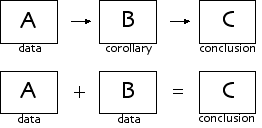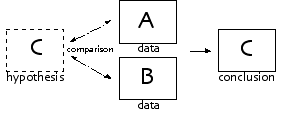|
This is my dynamic, frequently updated homepage. This is a NewsLog, also known as a WebLog or Blog.
Everything is evolving, so don't assume too much.
People to watch:
Adina Levin
Andrius Kulikauskas
Britt Blaser
Catherine Austin Fitts
Chris Corrigan
Clay Shirky
Dan Gillmor
Dave Pollard
David Allen
David Weinberger
Dewayne Mikkelson
Dina Mehta
Doc Searls
Elisabet Sahtouris
Elizabeth Lawley
Euan Semple
Florian Brody
Frank Patrick
Gen Kenai
George Dafermos
George Por
Graham Hancock
Greg Elin
Hazel Henderson
Heiner Benking
Inspector Lohman
Jean Houston
Jerry Michalski
Jim McGee
Jim Moore
John Abbe
John Perry Barlow
John Robb
Joi Ito
Jon Husband
Jon Lebkowsky
Jon Udell
Jonathan Peterson
Judith Meskill
Julian Elvé
Julie Solheim
Kevin Marks
Lawrence Lessig
Leif Smith
Letecia Layson
Lilia Efimova
Lisa Rein
Marc Canter
Mark Oeltjenbruns
Mark Pilgrim
Mark Woods
Martin Dugage
Martin Roell
Mary Forest
Matt Mower
Max Sandor
Michael Fagan
Mike Owens
Mikel Maron
Mitch Kapor
Mitch Ratcliffe
Nathalie dArbeloff
Netron
Noam Chomsky
Paul Hughes
Peter Kaminski
Phil Wolff
Philippe Beaudoin
Ray Ozzie
Raymond Powers
Rebecca Blood
Roger Eaton
Roland Tanglao
Ross Mayfield
Scott Lemon
Sebastian Fiedler
Sebastien Paquet
Skip Lancaster
Spike Hall
Steven Johnson
Stuart Henshall
Thomas Burg
Thomas Madsen-Mygdal
Thomas Nicholls
Timothy Wilken
Todd Suomela
Tom Atlee
Tom Munnecke
Tom Tomorrow
Ton Zijlstra
Lionel Bruel
Loic Le Meur
Nancy White
Mark Frazier
Merlin Silk
Robert Paterson
Colby Stuart
Nova Spivack
Dan Brickley
Ariane Kiss
Vanessa Miemis
Bernd Nurnberger
Sites to watch:
Edge
Junto
Absara
Rhizome
Nanodot
HeadMap
Openworld
FutureHi
Imaginify
Do No Harm
BoingBoing
Smart Mobs
Webcamorama
MetaFilter
NotThisBody
Disinfopedia
YES Magazine
Collective Web
WorldChanging
Disinformation
Escape Velocity
Space Collective
Friendly Favors
Emergent by Design
Independent Media
Global Ideas Bank
Forbidden Science
Greater Democracy
ThoughtsOnThinking
Disclosure Project
Explorers Foundation
Manufacturing Dissent
Collective Intelligence
Action without borders
Free Expression Network
Co-intelligence Institute
Electronic Frontier Foundation
French:
Emmanuelle
Manur
Elanceur
Loeil de Mouche
IokanaaN
Blog d'Or
Le Petit Calepin
GeeBlog
Absara
Guillaume Beuvelot
Ming Chau
Serge Levan
Jean Michel Billaut
C'est pas Mécanique

I live in Toulouse, France where the time now is:
01:06
Unique Readers:

Primarily
Public Domain
Everything I've written here is dedicated to the
Public Domain.

The quotes from other people's writings, and the pictures used might or might not be copyrighted, but are considered fair use. Thus, overall, this weblog could best be described as being:
Primarily Public Domain. |
Syndication:
 ![Validate my RSS feed [Valid RSS]](http://www.newciv.org/pic/valid-rss.png)
|
| Sunday, November 9, 2003 |  |
|
|
|
 Jason Salavon has done a little research project consisting of digital aggregation of playboy centerfolds. Specifically he averaged all the pictures for each decade. And you can see some kind of evolution over time ... I suppose. Like that the girls were pink in the 60s and orange in the 70s. Really you can't see much. I hope that he didn't get a research grant for this. Anyway, here to the right is my favorite, Miss 1980s. She looks sort of vaguely familiar somehow. Jason Salavon has done a little research project consisting of digital aggregation of playboy centerfolds. Specifically he averaged all the pictures for each decade. And you can see some kind of evolution over time ... I suppose. Like that the girls were pink in the 60s and orange in the 70s. Really you can't see much. I hope that he didn't get a research grant for this. Anyway, here to the right is my favorite, Miss 1980s. She looks sort of vaguely familiar somehow.
[ Inspiration | 2003-11-09 15:25 | | PermaLink ] More >
|
|
| Thursday, November 6, 2003 |  |
|
|
|
 I think Japanese youth culture and dress-up styles are fascinating. This is a picture of a girl in the Harajuku district of Tokyo, from here. As a tourist guide says: I think Japanese youth culture and dress-up styles are fascinating. This is a picture of a girl in the Harajuku district of Tokyo, from here. As a tourist guide says:"For youth culture Japan - "cool" and "cute"- Harajuku, just north of Shibuya, is the number one fashionable, fun, faddish, ridiculous, crazy "crib" to "chill out". Come along on a Sunday and you'll see it all!" And here's from a Japanese teen writing a paper on pop-culture:"Harajuku is weird central," says a Japanese friend of mine. Youth in Harajuku exhibit anime-style, gravity defying, Technicolor hair and wear elaborate makeup and costume-like clothing. Japanese visual rock bands are probably the greatest influence on this urban sub-cultural style. In these bands, the visual image projected by their clothes style and makeup is as important as the music they produce. Band members create onstage personas that extend far offstage. I present Japanese visual bands as an extreme of using fashion to "fabricate" an identity.
So how do these bands identify themselves? I would argue that the extremist style was developed to distinguish themselves from the mainstream music industry, largely occupied by corporate factory line, "idol school," produced singers. There is definitely shock value is this style of dress. The first thing you probably notice when looking at the photo of the band Glay, are the bands members' Technicolor, gravity-defying hairstyles. Dying hair is an obvious rejection of the Asian confine of basic black. It is symbolic of breaking out of the mold of appearing "Oriental". But more so, I think, the eye-catching hairstyles allude to anime and manga, where hair color and style often becomes a distinguishing feature of the characters."
[ Culture | 2003-11-06 04:59 | | PermaLink ] More >
|
|
|
|
 An Ethiopian fellow named Belachew Girma broke his own record in laughing non-stop. And got a crowd of unlookers to do the same. There's not always a lot to laugh about in Ethiopia, but sometimes the best therapy is to do so anyway. Story at BBC. An Ethiopian fellow named Belachew Girma broke his own record in laughing non-stop. And got a crowd of unlookers to do the same. There's not always a lot to laugh about in Ethiopia, but sometimes the best therapy is to do so anyway. Story at BBC. "We are living full of stress... Natural disasters, economical, political, social problems... My aim is to minimise this stress. Please let us communicate by smiling," he said. "Our slogan is 'laughter, love, peace for all human beings'." Indeed. The laughing exercise appears in a number of different traditions. I believe it is an old Buddhist exercise for one thing. I've participating in group laughing several times, and I can testify that it is very healing. In brief, you just start laughing, for no necessarily good reason. Sometimes that's difficult to do non-stop, but it helps to do it with a group of people. And it is kind of strange to break through the barriers that stop you from doing it. Crying works too, but I prefer the laughing process. Some people can hardly stop again. And just look at the smiling face of Belachew there. Hard not to laugh with him.
[ Inspiration | 2003-11-06 05:15 | | PermaLink ] More >
|
|
|
|
 This weekend there's a very unusual constellation happening in the sky, with, apparently, deep significances. Similar to what was called the Harmonic Convergence in 1987. Here's from Al Joy: This weekend there's a very unusual constellation happening in the sky, with, apparently, deep significances. Similar to what was called the Harmonic Convergence in 1987. Here's from Al Joy:On November 8–9 (depending on your location) a very rare and special global event will occur. Six planets and objects (Moon, Sun, Saturn, Chiron, Jupiter and Mars) will be aligned in a grand sextile or star pattern, a most unusual configuration.
Perfectly aligned for the first time in 2000 years to a Star of David configuration, these planets and objects will form a Grand Sextile of Earth and Water signs which is being called a Harmonic Concordance or the opening of the portal of Concordance (Concordance means Heart).
I believe that this celestial/astrological configuration will open a portal for a morphogenetic region of knowledge that will shift the morphogenetic patterns of all those who are exposed to it.
People will have an opportunity to be in alignment with divine knowledge and to live beyond the distorted perceptions of an evolving self whose instinctual, emotional, and physical perceptions and experiences have been overlaid by many different morphogenetic regions of knowledge on the planet.
For the last four decades, we have been experiencing strong outer planetary influences that have led to a dissolvement of our human self to merge with machines, chemicals, and devices. We have also experienced an ability to remote view and process extraterrestrial information. The complex psychological and ethereal environments that these influences have created are pushing us at speeds that we as humans can’t understand nor do we feel grounded or nurtured within. That’s because we’re having to take in and process data that is outside the realm of our physical and emotional expression. You can see the discrepancy that this creates when you compare certain parts of the globe that are still using human interaction vs. those that are using machines, chemicals, and devices to organize the world around them. By dissolving our human self, we end up removing humanism as the centerpiece of what our lives revolve around.
The Grand Sextile of Earth and Water signs that we are about to experience will awaken and bring a resurgence of female energy and passivity on the planet, balancing the male energy and reduced sense of humanism that has been dominating this time period.
The Earth and Water signs, as conduits for female energy, will allow us to integrate our physical and emotional interactions as we merge and dissolve with the radical, transforming knowledge that is being dispensed. Operating at a much slower speed, the Earth and Water signs bring structure and nurturing, giving us time to absorb and retain what is taking place around us. We could sure use that. See more here. Many synchronized ceremonies, rituals and events across the world this weekend.
[ Energy | 2003-11-06 13:59 | | PermaLink ] More >
|
|
| Tuesday, November 4, 2003 |  |
|
|
|
 A few Orwellian words about war from "1984": A few Orwellian words about war from "1984":"The war, therefore, if we judge it by the standards of previous wars, is merely an imposture. It is like the battles between certain ruminant animals whose horns are set at such an angle that they are incapable of hurting one another. But though it is unreal it is not meaningless. It eats up the surplus of consumable goods, and it helps to preserve the special mental atmosphere that a hierarchical society needs. War, it will be seen, is now a purely internal affair. In the past, the ruling groups of all countries, although they might recognize their common interest and therefore limit the destructiveness of war, did fight against one another, and the victor always plundered the vanquished. In our own day they are not fighting against one another at all. The war is waged by each ruling group against its own subjects, and the object of the war is not to make or prevent conquests of territory, but to keep the structure of society intact. The very word "war," therefore, has become misleading. It would probably be accurate to say that by becoming continuous war has ceased to exist. The peculiar pressure that it exerted on human beings between the Neolithic Age and the early twentieth century has disappeared and has been replaced by something quite different. The effect would be much the same if the three superstates, instead of fighting one another, should agree to live in perpetual peace, each inviolate within its own boundaries. For in that case each would still be a self-contained universe, freed forever from the sobering influence of external danger. A peace that was truly permanent would be the same as a permanent war. This -- although the vast majority of Party members understand it only in a shallower sense -- is the inner meaning of the Party slogan: WAR IS PEACE." George Orwell [1903-1950], whose birth name was Eric Blair, was an intense novelist and political essayist; a socialist, he fought in the Loyalist forces in the Spanish Civil War, and was a critic of totalitarianism, including Stalinism. He also foresaw the rise of our present post-post-modern bureaucratic authoritarianism.
[ Politics | 2003-11-04 11:03 | | PermaLink ] More >
|
|
| Monday, November 3, 2003 |  |
|
|
|
 There are two methods of logical reasoning that are often contrasted with each other. There are two methods of logical reasoning that are often contrasted with each other.
Here's deduction. That's when A leads to B that leads to C. Or A + B leads to C for that matter. You try to follow a logical sequence, trying to include all the facts and weeding out any variables, in order to logically prove the inevitable conclusion. Because this is true, then that must be true, and therefore we can conclude so-and-so.
These are some of the problems with deduction:
A. The human mind is badly suited for including all relevant facts. We use pattern matching to make sense out of anything, so no matter what we think is concise, comprehensive and logical, it most likely isn't.
B. The human language is not precise. Words are abstract, and different people don't mean exactly the same by them.
C. Deduction can fairly easily be manipulated by providing or revealing only those elements that will support a given conclusion.
 Then there's induction. That's where you make a mental leap and guess at the conclusion first, and then you go and check if it fits with the facts at hand. And, presumably, if you succeed in coming up with a theory that fits all the facts and hand, and that can be repeated and verified, then you've got a good answer. Or you'll find out that your hypothesis is wrong, because it doesn't explain the facts you see. Then there's induction. That's where you make a mental leap and guess at the conclusion first, and then you go and check if it fits with the facts at hand. And, presumably, if you succeed in coming up with a theory that fits all the facts and hand, and that can be repeated and verified, then you've got a good answer. Or you'll find out that your hypothesis is wrong, because it doesn't explain the facts you see.
Some of the problems with induction are:
A. The human mind is also rather badly suited for coming up with original explanations that aren't based on what previously has been fed in.
B. If one starts believing the inducted idea, there's a tendency to filter out any data that doesn't fit it, and it doesn't actually get verified.
And there's a problem with both that they're all just good guesses. You can be good at logic, and follow stringent steps of analysis and reasoning, and consistently come up with good predictions, much superior to blind, random guesses, but they're still really just qualified guesses.
Good science uses both deduction and induction. You use induction to come up with new theories that might explain more things, and you do experiments and deduct what they're showing you.
Bad science does roughly the opposite. E.g. make new theories and forget to verify them properly. Or, deduct from previous theories in order to conclude what's impossible and therefore shouldn't be explored. And rule out new theories because they don't fit with the old theories. You know, "planes can't fly because they're heavier than air", or "we won't see any extraterrestrials come here because it is impossible to travel faster than light".
Personally I like using deduction for solving puzzles, and I tend to be good at drawing the logical conclusion from data that is available. But to create my picture of the world, I much prefer to use induction. I.e. I search for, or imagine, the models that will explain more of the world I know than the models I previously used. And which I can verify by experiment in my own life, and/or which will better predict events than the alternative models. I recommend it.
But watch out for people who would like to sell you more limiting world views and explanations, based on that they have been "proven" and yours have not. The logical wires have been crossed a bit there. If you have a model or world view that allows you to successfully understand, explain and predict many things, don't buy a model that explains and predicts less, no matter what authority backs it up, or questions yours.
Astrology is a fine example there, particularly because a lot of people will think that it isn't. If you're a skilled astrologer who can probably successfully understand and explain and predict lots of things about people, you might once in a while run into an angry scientific type who insists that it is a big fraud, and you're an idiot, because nobody's found any mysterious rays from the planets that are controlling people. And he's typically implicitly inviting you to drop your large vocabulary of patterns and archetypes and relationships, and replace it with, essentially, the belief that you can't really predict anything much about people's lives and personalities, and random data and luck is about the best you can get. Is that better? If astrology actually works for you, obviously no. If it doesn't, maybe you should keep looking. Reading tea leaves is not necessarily better than checking out the available facts.
The test is of course whether it works. The most satisfying, all-encompassing, verifyable, workable, simple explanation is the better one. That it is big and complex doesn't make it better. Simpler is better. But the point is to use the model that works best for you.
 So, what about, say, religious explanations? Well, if you're actually reasoning yourself conscioiusly towards a more complete cosmology, the same rules apply. If you're accepting somebody else's explanation, you might very well be subject to the pitfalls mentioned above. I.e. you get to see exactly what you expect to see and nothing else. Specifically religious discourse seems to be fruitful ground for the circular kind of reasoning, where you logically 'prove' to yourself that the foundation for your belief is sound, simply by starting with a datum and coming back to it a little later. So, what about, say, religious explanations? Well, if you're actually reasoning yourself conscioiusly towards a more complete cosmology, the same rules apply. If you're accepting somebody else's explanation, you might very well be subject to the pitfalls mentioned above. I.e. you get to see exactly what you expect to see and nothing else. Specifically religious discourse seems to be fruitful ground for the circular kind of reasoning, where you logically 'prove' to yourself that the foundation for your belief is sound, simply by starting with a datum and coming back to it a little later.
You know, "Jesus died for MY sins, so I really owe him to listen to his words, and what he says is in the bible, so it must be true, because he said it, and it says that he died for my sins." A mix-up of what is the hypothesis and which is the data.
"Nothing can travel faster than light because we have a theory that says so, so therefore we aren't looking for it, and therefore we haven't seen anything do so, and therefore it is proven."
Evolutionists versus Creationists is probably another area where you'll find plenty of circular reasoning, where you prove your point by your own arguments.
One way or another, there isn't quite any logical panacea that you can prove everything with. Developing a useful picture of the world is done with some mixture of an open mind, your own intuition, keen observation, experimentation, luck, good advice, access to good data, verificaton of the validity of data AND some discipline of logical reasoning.
[ Patterns | 2003-11-03 13:27 | | PermaLink ] More >
|
|
|
|
I don't really understand a word of this article in Scientific American. But it seems that a reknowned theoretical physicist is suggesting that the universe is a 3-4 dimensional hologram created from a 2 dimensional array of information. In part because, surprisingly, a 2D surface can contain more information than a 3D construct, as the latter would collapse by its own mass into a black hole at some point. Which is all certainly an intriguing idea. You know, a hologram is created by shining light on a special piece of film, and a 3D picture is created. So, as to the universe, it would mean that what we see and walk around in is an illusion generated from light and information. Which of course makes it seem kind of likely that we can generate something a little or a lot different by changing the information a bit.
[ Science | 2003-11-03 13:27 | | PermaLink ] More >
|
|
|
|
A few people responded to my previous post about an EU poll of which country would be the biggest threat to world peace, and hinted that I'm anti-semitic for posting it, and for voicing an agreement with the majority opinion expressed in it. And, well, that's a rather explosive thing to even try to discuss, but I'm trying anyway.
When I grew up in Denmark, the history of the German occupation and extermination of Jews was a big part of our education. And there would be no question about that we of course were on the side of the persecuted Jews and against the Nazis.
But it was also sort of an abstract thing. I didn't really know what a Jew was. Meaning, it would be sort of a puzzle to me why Jewish people were singled out. I couldn't really see any difference between Jewish people and non-jewish people. Did they have more crooked noses, or what's the deal? And why should that be a problem? I really didn't get it. I couldn't understand how it could be a racial thing when the people percecuted didn't look any different from anybody else.
When I moved to the U.S. it became a little more clear. In part because there's a lot of racism in the U.S. Let me clarify. In California I didn't experience much racism in terms of some skin colors being considered less than others. Maybe a little bit of looking down on Mexicans, but I didn't really understand that either, as I don't perceive hispanic people as being of any different race than I am. But the kind of racism I'm talking about is kind of in reverse. There was a lot of attention put on people's races. When I filled out public forms, I'd have to check off that I was "Caucasian", whatever the hell that is supposed to mean. And everybody's very sensitive about stating that somebody's african-american or hispanic or asian-american or something. And very afraid of offending anybody. I really found it rather tasteless to always emphasize races, when I'd really much rather have that we're all just humans, which is pretty much how I see it.
And it was in the U.S. that I first met people who would identify themselves as Jewish. My boss for a number of years, whom I was very fond of, was Jewish. As was a bunch of the managers. And I went to his son's bar-mitzvah. Which was enjoyable. The ceremony in the temple was really lively and down-to-earth. In my lunch break I would frequently go and eat fallafels in an Israeli food place. Every week there was a rabbi speaking to a group of people there, telling stories from the Torah and explaining what they meant. Which I found rather enjoyable too. And all of which only gave me a pleasant feeling about the Jewish culture and religion. And then there's the Kabbalah, which is a great source of wisdom.
Certainly nothing has given me any reason to conclude that Jewish people across the board would somehow be something to be against. I haven't found anything about Jewishness not to like. And the whole idea of being anti- some particular cultural or racial group, that's very foreign to me.
At the same time I do understand that various kinds of people might carry deep-seated grudges against each other. Cultural groups that have very stronly negative opinions about each other, often based on things that happened a very long time ago, but which somehow is part of the cultural heritage. Again, I have a hard time personally identifying with that, as I don't have any personal experience to relate it with. But I realize that it is different for some people.
I still get kind of puzzled and surprised when once in a while I run into Jewish people who have very strong opinions when the subject of the Israel-Palestinian conflict comes up. Or, rather, strong opinions do not surprise me, and would be perfectly understandable. Rather when what a moment ago what was a pleasant, relaxed, well-reasoned person suddenly is somebody apparently filled with hatred and anger and vengeance. Somebody going to great lengths to convince me that I'm an idiot if I don't understand that Palestinians, as well as all Arabs, are violent, lying, criminal sub-humans who aren't to be trusted. And that Palestinians don't deserve any land to live on, because it was never theirs in the first place, and there's really no such things as "Palestinians", and it would be easier to just mow down the whole lot anyway. And if I dare to disagree, that's around the time when I get called anti-semitic, and somebody will question why I've listened so much to Arab propaganda that I can have such an outrageous opinion.
Note, I'm not trying to generalize that all Jewish people see it that way. They most certainly don't. And I'm not trying to generalize that it is a particularly Jewish thing. I'm sure there are plenty of Palestinians or Arabs who'd prefer that all Jews would be wiped off the face of earth. For some reason they just haven't crossed my path much, other than on TV. And I'm sure there are plenty other groups that feel in similar ways about each other. Yugoslavia, Rwanda, etc.
But I can say with some confidence that that attitude certainly doesn't help in creating peace anywhere. Whatever past history of transgressions it is based on.
And I can say that it is my opinion that the Israeli government is going about the matter completely wrong, and probably is guilty of many war crimes.
And, sure, most likely Arafat is a bumbling idiot and has missed several great opportunities for peace laid out in front of him.
And, sure, strapping explosives to your body and blowing up innocent people in buses and shopping centers, that's a very bad idea. As is gunship attacks on people's homes. All of it is just escalating a conflict that didn't have to exist.
I happen to think the Israeli government holds most of the cards, and that it is playing them wrong. And I suppose the people in the Israeli government are Jewish. Does that make me anti-semitic? Not any more than my opinion that George W's government is illegitimate and corrupt makes me anti-caucasian or anti-christian or anti-american.
People and governments are different things. Individual people, such as government leaders, are different things than the country or race or culture they come from.
I usually can't recognize Jewish people unless they identify themselves as such. It doesn't matter to me if you're Jewish or not. Or whether you're Muslim or not. If you are and it is important to you, great. But I don't go around looking for signs that you're in some kind of cultural or religious group that I can then have a bias for or against. If you have a unique perspective or an interesting heritage, I might very well be interested in hearing it. But as far as I'm concerned, I'm a member of humanity, and so are you.
[ Opinions | 2003-11-03 15:02 | | PermaLink ] More >
|
|
| Saturday, November 1, 2003 |  |
|
|
|
 I'm not particularly into sports, but soccer at least seems like a sport that makes some kind of sense to me. Anyway, France Telecom had given us a set of soccer tickets, to be nice to us because it took a long time to get our DSL line debugged. So, we attended our first real soccer match. Toulouse Football Club against AJ Auxerre. Which was kind of fun and interesting, at least since it was only the players who were out in the rain. 3-0 for the foreign team. As the news says "Auxerre disposes of Toulouse without any problem". I'm not particularly into sports, but soccer at least seems like a sport that makes some kind of sense to me. Anyway, France Telecom had given us a set of soccer tickets, to be nice to us because it took a long time to get our DSL line debugged. So, we attended our first real soccer match. Toulouse Football Club against AJ Auxerre. Which was kind of fun and interesting, at least since it was only the players who were out in the rain. 3-0 for the foreign team. As the news says "Auxerre disposes of Toulouse without any problem".
The other day we went on a tour of the old Roman Arena in Toulouse. 1900 years ago, that was the main sports entertainment. The arena had seats for half of Toulouse's population at the time, and gladiators would fight bears and wolves and each other. Not that there's much left of the arena today, but I have a good imagination.
[ Diary | 2003-11-01 18:11 | 0 comments | PermaLink ]
|
|
|
|
 ABC TV plans a documentary looking into the possibility that Jesus had a wife. Should hardly be a news item, but apparently that is something that causes controversy. The show is based on The Da Vinci Code, a novel I haven't read, but which is based on lots of research found in other places. Like, I've read Holy Blood, Holy Grail. Which in part presents an excellent case for the story that Jesus and Mary Magdalene had descendants and that there's a lot of intrigue around secret groups of people carrying on and protecting their blood line. Anyway, as to the Da Vinci thing, look at the famous "Last Supper" picture. As Michael Rivero says: ABC TV plans a documentary looking into the possibility that Jesus had a wife. Should hardly be a news item, but apparently that is something that causes controversy. The show is based on The Da Vinci Code, a novel I haven't read, but which is based on lots of research found in other places. Like, I've read Holy Blood, Holy Grail. Which in part presents an excellent case for the story that Jesus and Mary Magdalene had descendants and that there's a lot of intrigue around secret groups of people carrying on and protecting their blood line. Anyway, as to the Da Vinci thing, look at the famous "Last Supper" picture. As Michael Rivero says:"That's a woman sitting next to Jesus, occupying the traditional position of a wife. Under Judaic laws of the time, Jesus could not be a Rabbi unless he were married. But Jesus marriage and his children are the secret Christianity does not want you to know, because the early Christian church leadership was based on the concept of apostolic descent, which only works if Jesus died without heirs. In the 1200s, the Catholic church, in order to consolidate power, undertook to erase from the world the descendants of the historical Jesus, and all public record that they had ever existed. In the process, 1/2 the population of Southern France was murdered." I don't know if it was exactly half, but it was pretty bad. And there we're talking here about the Albigensian Crusade in which the catholic church wiped out the Cathars and carried out a general genocide. "Kill them all, God will recognize His own." Anyway, a number of the trails of Jesus and Mary Magdalene seem to lead here, Southern France, the Languedoc area. And the Cathars happened to have their very own idea of what to believe in. Dan Sewell Ward says:"What did the people of the Languedoc do to deserve such a crusade? The Languedoc practiced a civilized, easy-going religious tolerance, much like Byzantium. In contrast to the fanatical zeal that characterized other parts of Europe, the Languedoc was a place where learning and philosophy flourished, poetry and courtly love were extolled, and Greek, Arabic and Hebrew were enthusiastically studied. Schools devoted to the Kaballah -- aka, Ha Qabala, the ancient exoteric tradition of Judaism -- thrived.
The key problem, from Rome's point of view, was that the Cathars in 1200 constituted a heresy which could conceivably displace Roman Catholicism as the dominant form of Christianity. In general the Cathars subscribed to a doctrine of reincarnation and to a recognition of the feminine principle in religion. Indeed, the preachers and teachers of Cathar congregations were of both sexes. At the same time the Cathars rejected the orthodox Catholic Church and denied the validity of all clerical hierarchies, all official and ordained intercessors between man and God.
At the core of this position lay an important Cathar tenet -- what the Church called the repudiation of "faith". In the place of "faith accepted at second hand", the Cathars insisted on direct and personal knowledge, a religious or mystical experience apprehended at the individual in a firsthand fashion. This experience has been called gnosis, from the Greek word for "knowledge", and for the Cathars it took precedence over all creeds and dogma. Given such emphasis on direct personal contact with God -- priests, bishops, and other clerical authorities became superfluous. Also, Popes. Oops." Sounds much preferable to me. No wonder they were massacred. But they aren't exactly gone. The spirit of the Cathars is quite alive today with the people who live here. It is an important memory and historical background for who people are, and just about everybody who's lived here for a while is ready to tell you the story, and you see books and magazines and TV shows everywhere about the Cathar heritage. And, I must admit, I find it rather intriguing myself.
[ History | 2003-11-01 18:11 | | PermaLink ] More >
|
|
|
|
There's apparently some controversy around a large EU poll which was asking in part what country people considered to be the biggest threat to world peace. The answer was Israel. And what country contributes the most to world instability, to which the answer was the United States. The controversy wasn't about the precision of the poll, but about the fact that less explosive parts of it were published first. Anyway, I'd tend to agree with the results, and I would probably have given the same answers. Weapons of mass destruction and distraction in the hands of well-funded fanatics is a dangerous thing. And reports like this makes me a bit nervous."American-made Harpoon missiles, armed with nuclear warheads, are now aimed by Israel’s fleet of Dolphin-class submarines against Iran’s nuclear facilities.
Following September’s exclusive report in American Free Press about Israel’s submarine nuclear attack capability, over 100 Harpoon cruise missiles have been secretly airlifted to the remote island of Diego Garcia, a joint UK-U.S. base in the Indian Ocean.
The three Israeli submarines that arrived at the base early this month were each loaded with 24 Harpoon missiles.
They then set sail for the Gulf of Oman—bringing Iran’s nuclear facilities all within range of the submarines’ payloads.
The decision to launch them is entirely in the hands of Israeli Prime Minister Ariel Sharon. Just as Sharon gave Washington only a short warning before he gave the order to attack an alleged terrorist camp deep inside Syria, he has made it clear to Washington that the same rule of engagement will apply if it comes to launching the Harpoons."
Not that I know if it is correct, but it wouldn't be particularly surprising.
(Addition, November 6th: As it turns out, there are plenty other validations of the same news item, including public acknowledgements. See, for example the Guardian)
[ Politics | 2003-11-01 18:11 | | PermaLink ] More >
|
|
| Friday, October 31, 2003 |  |
|
|
|
 Well, Halloween isn't quite the same in France. But apparently it has been introduced here too in recent years, like it has in other parts of Europe. When you look at the aisles in the supermarket it looks just like in the U.S. So, we did actually put out a couple of lighted pumpkins and skeletons and stuff. And all of 3 brave kids actually showed up dressed-up, trick or treating. Except for that they have a different chant, saying something about wanting bon-bons. Which they got. We weren't sure anybody were going to show up. In part because people don't easily venture in to other people's houses here. Normally you're barricaded behind locked gates and rolled down shutters. To start a little action, little Nadia stood outside by the driveway and offered candy to people who came by. Several kids who happened to walk by with their parents actually refused. I suppose they've been taught not to accept candy from strangers. And one man accepted a piece of chocolate, but insisted on paying for it. So, things are a little different here. Anyway, here on the picture is Marie-Therese and Zachery on their way out to a party. Well, Halloween isn't quite the same in France. But apparently it has been introduced here too in recent years, like it has in other parts of Europe. When you look at the aisles in the supermarket it looks just like in the U.S. So, we did actually put out a couple of lighted pumpkins and skeletons and stuff. And all of 3 brave kids actually showed up dressed-up, trick or treating. Except for that they have a different chant, saying something about wanting bon-bons. Which they got. We weren't sure anybody were going to show up. In part because people don't easily venture in to other people's houses here. Normally you're barricaded behind locked gates and rolled down shutters. To start a little action, little Nadia stood outside by the driveway and offered candy to people who came by. Several kids who happened to walk by with their parents actually refused. I suppose they've been taught not to accept candy from strangers. And one man accepted a piece of chocolate, but insisted on paying for it. So, things are a little different here. Anyway, here on the picture is Marie-Therese and Zachery on their way out to a party.
[ Diary | 2003-10-31 13:02 | | PermaLink ] More >
|
|
|
|
Curt Rosengren mentions a fine little article in Discover Magazine about how our brains are wired for getting us what we expect we'll get, even when it doesn't make sense."Touch a pencil with all five fingertips of one hand, close your eyes, and ponder: If each fingertip forms a distinct tactile "image" of the pencil, why do you perceive a single pencil instead of five unconnected pencil fragments? The answer is that your brain has special circuits that help you build complete pictures from fragmented sensory information. In effect, these gap-filling circuits induce your brain to perceive what it expects to see, instead of what it actually sees. When these expectations accurately reflect the objective world around you, your perceptions will be on target. Sometimes, however, what your brain expects to see is far from an accurate representation of reality." It then has some practical exercises for demonstrating this, which you've probably done as a kid and forgotten. Like, demonstrating to you that you actually have two noses.The way that expectations shape perceptions has important implications for education. The developing brain processes complex perceptions, such as how difficult an academic subject is, in much the same way it handles simpler sensory information. If a student is led to expect that mathematics is difficult, even simple numerical problems may be perceived as unsolvable. Plain as the nose on your face, what you believe determines what you achieve. I seem to remember experiments done with prisoners on death row that convinced them that they were dying, when they really weren't. They were promised money for their favorite charity or something. And then, you know, they were blindfolded and their arm anesthesized so they couldn't feel it, and then told that their veins were cut, so the blood would run out, and the point was to see how long they would stay conscious. And sound effects were produced that made it sound like blood was rushing out, even though it wasn't. And the guy died, because he was sure he would. I think they stopped the experiment after the second prisoner died the same way. Anybody has a reference on that? Sorry about the bloody story.
Anyway, the constructive point is of course that we can just as well get ourselves and others into expecting wonderful, magical and positive things to happen. And, again, the point is to do it sufficiently thoroughly that we actually succeed.
[ Inspiration | 2003-10-31 14:51 | | PermaLink ] More >
|
|
|
|
A key source of the information the U.S. administration based the decision to invade Iraq on seems to have been a secret office in Washington, D.C. It has the curious name "Office of Special Plans" and had a direct line feeding intelligence and conclusions to George W and his friends. The problem was that it wasn't really intelligence they were feeding him, even though it was presented as such. The office was staffed by ideologue neo-conservatives who specialized in putting together exactly the story and the information and reasons that the administration would like to hear. They didn't consult with traditional intelligence professionals like the CIA, and their information and conclusions weren't reviewed or cross-checked by anybody but themselves. They sub-contracted some of the work to various groups who had similar neo-conservative views, such as an Israeli group that manufactured suitable intelligence separately from Mossad.
You can read about it for example here, or a detailed analysis here.
Some of this has come to light from a whistleblower, Lt. Col. Karen Kwiatkowski, who worked in the office of Under Secretary of Defence until her retirement in April. "What I saw was aberrant, pervasive and contrary to good order and discipline", Kwiatkowski wrote. "If one is seeking the answers to why peculiar bits of 'intelligence' found sanctity in a presidential speech, or why the post-Saddam (Hussein) occupation (in Iraq) has been distinguished by confusion and false steps, one need look no further than the process inside the Office of the Secretary of Defence" (OSD)... and she mentions here one of the prevailing themes she noticed in operation in the Office of Special Plans:"Groupthink. Defined as 'reasoning or decision-making by a group, often characterized by uncritical acceptance or conformity to prevailing points of view', groupthink was, and probably remains, the predominant characteristic of Pentagon Middle East policy development. The result of groupthink is the elevation of opinion into a kind of accepted 'fact', and uncritical acceptance of extremely narrow and isolated points of view.
The result of groupthink has been extensively studied in the history of American foreign policy, and it will have a prominent role when the history of the Bush administration is written. Groupthink, in this most recent case leading to the invasion and occupation of Iraq, will be found, I believe, to have caused a subversion of constitutional limits on executive power and a co-optation through deceit of a large segment of the Congress." A cult of fanatics duping the United States congress with manufactured and incorrect information into going to war. I don't see why this shouldn't be as big as Watergate.
[ Politics | 2003-10-31 17:30 | | PermaLink ] More >
|
|
| Thursday, October 30, 2003 |  |
|
|
|
 There is a busy little private company you probably never have heard about, but which you should. Its name is the Depository Trust & Clearing Corporation. See their website. Looks pretty boring. Some kind of financial service thing, with a positive slogan and out there to make a little business. You can even get a job there. Now, go and take a look at their annual report. Starts with a nice litte Flash presentation and has a nice message from the CEO. And take a look at the numbers. It turns out that this company holds 23 trillion dollars in assets, and had 917 trillion dollars worth of transactions in 2002. That's trillions, as in thousands of thousands of millions. 23,000,000,000,000 dollars in assets. There is a busy little private company you probably never have heard about, but which you should. Its name is the Depository Trust & Clearing Corporation. See their website. Looks pretty boring. Some kind of financial service thing, with a positive slogan and out there to make a little business. You can even get a job there. Now, go and take a look at their annual report. Starts with a nice litte Flash presentation and has a nice message from the CEO. And take a look at the numbers. It turns out that this company holds 23 trillion dollars in assets, and had 917 trillion dollars worth of transactions in 2002. That's trillions, as in thousands of thousands of millions. 23,000,000,000,000 dollars in assets.
As it so turns out, it is not because DTCC has a nice website and says good things about saving their customers money that they are trusted with that kind of resources. Rather it is because they seem to have a monopoly on what they do. In brief, they process the vast majority of all stock transactions in the United States as well as for many other countries. And - and that's the real interesting part - 99% of all stocks in the U.S. appear to be legally owned by them.
In the old days, when you owned stocks you would have the stock certificates lying in your safe. And if you needed to trade them, you needed to get them shipped off to a broker. Nowadays that would be considered very cumbersome, and it would be impractical to invest via computer or over the phone. So the shortcut was invented that the broker would hold your stocks instead of you. And in order for him to legally be able to trade them for you, the stocks were placed under their "street name". I.e. they're in the name of the brokerage, but they're just holding them in trust and trading them for you. And you're in reality the beneficiary rather than the owner. Which is all fine and dandy if everything goes right. Now, it appears the rules were then changed so the brokers are not allowed any longer to put the stocks in their own name. Instead, what they typically do is to put the stocks into the name of "Cede and Company" or "Cede & Co" or some such variation. And the broker might tell you that it is just a fictitious name, and will explain why it is really more practical to do that than to put it in your name.
The problem with that is that it appears that Cede isn't just some dummy name, but an actual corporation that DTCC controls. And, well, if you ask anybody about this, who actually knows about it, they will naturally tell you that it is all a formality. To serve you better, of course. And, well, maybe it is. DTCC seems like a nice and friendly company. It is a private company, owned by the same people (major U.S. banks) who own the Federal Reserve Bank. And if they all stick to their job, and just keep the money and your stocks flowing smoothly, I'm sure that is all well and good. But if somebody at some point should decide otherwise, and there's a national U.S. emergency and/or the U.S. government becomes unable to pay its debts, well, they might just not give you your stocks back. Because legally they own them. Something to think about.
An fascinating article about this whole thing is here. I will include it at the bottom too, in case it should disappear. Not that I can vouch for or agree with everything the guy is saying, and some of it is a little whacko, but obviously he's been researching this quite a bit. You'll find very little about it on the net otherwise.
[ Information | 2003-10-30 17:37 | | PermaLink ] More >
|
|
| Wednesday, October 29, 2003 |  |
|
|
|
 I had quite a nightmare experience with the car we rented from Budget Rent-a-car 3 months ago when we first came to France. And it is no way finished, as it seems they succeeded in ripping me off of $3300 on top of the full rental and insurance we paid, where really it should have been them who ought to have reimbursed me for our extra trouble and expenses. I had quite a nightmare experience with the car we rented from Budget Rent-a-car 3 months ago when we first came to France. And it is no way finished, as it seems they succeeded in ripping me off of $3300 on top of the full rental and insurance we paid, where really it should have been them who ought to have reimbursed me for our extra trouble and expenses.
In brief, we rented a car for 3 weeks from Budget in the airport in Toulouse, France. I opted for full insurance and paid it all in advance. During those 3 weeks we decided to drive to Denmark. On the way the car broke down on the freeway in Hamburg, Germany in the middle of the night. Budget had it towed away, and we went and received a replacement car in the Budget office of the Hamburg airport in the morning. We continued in that car. 6 days later when we were coming back, they weren't done reparing the French car, so we kept driving the German car and handed it back at the end of our rental period in Toulouse. In the meantime they had decided that it was our fault the car broke down, because Ford wouldn't repair it under warranty. They at first wanted to bill us the full cost of the repair (1400 euros) and the cost of transporting the two cars back to where they belonged (1300 euros). I refused. Instead they charged 800 euros for an accident deductible. There hadn't been any accident, mind you. I thought that was the end of it, but the next day another $2300+ was charged to my account from Budget Germany. I didn't get any explanation for it, but assumed it would be the rental price for the German car, plus a charge for transporting it back. Note that I already had paid for the whole period and didn't get any refunds.
When I found that out, I asked my bank to reverse the charges (around $3300). They did that, pending investigation, and I sent them my story and all the documentation. But Budget never answered their queries. So then, last week the bank re-reversed the charges and deducted the amount from my account again. And, well, the checking/visa account was almost empty already, so the result became that it is now $3000 overdrawn, and I'd be in risk of losing my account, screwing up my credit, and not having any way of paying my U.S. bills.
The full story with details is at the bottom, for anybody who's particularly interested. But let me bring out a few points and pieces of advice that are good to pass on:- When you rent a car in a European country from a big car rental company, you might not actually be dealing with that company at all, but with a small local franchise. I realized later that I was dealing with one company in the south of France and another in northern Germany, and not at all with Budget Rent A Car System, Inc, despite that it has big signs and business cards and everything saying BUDGET. Only when you get the final bill do you realize who you've been doing business with.
- A car rental franchise in one place has very little interest in covering expenses that are incurred with another franchise in another place, even if it is their fault. Even if it has the same BUDGET sign in the same big letters over each of their booths.
- Europe is not the U.S. You can't count on the existence of a general rule that "the customer is always right". Asking to talk to somebody's supervisor might not get you anywhere.
- It is common in several European countries that even though you opt for the full insurance, there's a large deductible, which they might well forget to mention to you. The approach of some companies is that if anything at all happens to the car, you pay that deductible. It is often 800 or 1000 euros.
- A car rental franchise is likely to have the view that if anything breaks down on the car, the warranty of the manufacturer will cover it. And if they don't, it is YOUR fault. Doesn't matter how many other people have driven the car before, or what state it was in when you got it.
- If your rental car breaks down, there's an emergency number to call. But don't expect that they'll actually deal with anything other than having the car towed away. They might leave you in the night in the rain in a foreign country until their offices will open on the next business day.
- If you get a replacement car in a different office or a different franchise than the original car, and they make you sign a new contract, it is NOT "just a formality". You're likely to become liable for paying exactly what it says on it. You've better get a written and signed statement from them that says it is a replacement car, and it will be covered by the original contact. Verbal statements mean nothing later on.
- A car rental company is free to bill you extra charges, damages, etc., without asking you. It is probably hidden in the small print you didn't read, but it doesn't even have to be. Your bank is likely to pay the charges, even if the money isn't in your account.
- If you don't agree with the charges, your credit card company can not just cancel the charges. They might be nice to temporarily reverse them while they're looking into it. But they've already paid the company, and unless they agree with the wrongness of the charge, and they can persuade them to give the money back, there's nothing much you can do about it. Particularly when the charges happened in a different country than your bank is in, and all the paperwork is in French and German.
- Neither the car rental franchises nor the bank are going to care much about whether it is fair to have to pay $4600 for renting a small faulty car for three weeks, which broke down and didn't get your where you were going. What matters is what the papers say and what you can prove. Or, what they can get away with.
I have rented a lot of cars, both in the U.S. and various European countries, and I've usually felt really safe and comfortable about the transactions. Minor problems like a broken taillight were usually accepted with a smile and a "Thank you for your business!" But then again, I haven't ever used Budget before. Avis has always been nice to me.
[ Diary | 2003-10-29 16:15 | | PermaLink ] More >
|
|
| Tuesday, October 28, 2003 |  |
|
|
|
 Andy Borrows quotes Milton Erickson, the famous therapist and inventor of clever hypnotic patterns that often helped people change in rather miraculous ways: Andy Borrows quotes Milton Erickson, the famous therapist and inventor of clever hypnotic patterns that often helped people change in rather miraculous ways:"Well, let's pretend... that you're a therapist who works with people. The most important thing... when you're pretending this... is to understand... that you are really not... You are just pretending... And if you pretend really well, the people that you work with will pretend to make changes. And they will forget that they are pretending... for the rest of their lives. But don't you be fooled by it." Indeed. Any therapist should be very clear on that. But it is a secret. Most people are not so good at pretending if they know they're pretending. We usually need to fool ourselves in thinking we're doing something more. That there are really good reasons for being the way we are. So, if we need to change, we'll often need a whole support scaffolding around our new way of being, which makes it look perfectly reasonable and unavoidable that this is now the way it is. A good therapist will help people feel that it is perfectly reasonable and normal to be a different person from now on. It is all just pretend. But so is everything else.
[ Processing | 2003-10-28 17:05 | | PermaLink ] More >
|
|
|
|
 Bernard Wisser says some good stuff in relation to how you can "Stand still and look until you really see", about how to get beyond the habits that keep us stuck in seeing the world in old ways. Bernard Wisser says some good stuff in relation to how you can "Stand still and look until you really see", about how to get beyond the habits that keep us stuck in seeing the world in old ways."Practices can be used not only to expand the mind but to shrink the ego and bringing into a proper proportion in influencing our behavior or curing it of its pathology. There seems to be an inverse relation between mind expansion and ego diminishment. There is also an intimate relationship between left brain activity and ego in their attempts to insure our survival. They are both very involved in the pre-perceptual and perceptual process. Unfortunately, in order to stabilize a world (even a universe) that is in constant process, so we can operate more effeciently in it, in a material and practical way, the right brain alliance has formed a whole barrel of HABITS (not very good).
Habit formation is what prevents from being here now. You can of a habit as a behavioral packet in which the Past (behavior or meaning or understanding or catagorizing) is repeated in the Present when confronted with a "similiar" situation, in order to insure your Future as you planned it to be in the Past. Notice the emphasis on similiar that matching is done both before and after perception in the process of organizing are world. So what we experience most of the time is what we have become conditioned to as important for our survival, maintainance, and growth." And he has an exercise. So go practice experiencing things a different way than you have before.
[ Patterns | 2003-10-28 17:30 | | PermaLink ] More >
|
|
| Monday, October 27, 2003 |  |
|
|
|
 Roland quotes Dave Pollard who's writing about how to trick your left brain (anylytical, iconic) into getting out of the way so that you actually can see what you see in front of you, and allow your creativity to flow. Good stuff there, including this from Dave Pollard: Roland quotes Dave Pollard who's writing about how to trick your left brain (anylytical, iconic) into getting out of the way so that you actually can see what you see in front of you, and allow your creativity to flow. Good stuff there, including this from Dave Pollard:"Here are some exercises that I've found can help left-brainers to 'really see':- Move in close, so you divert attention from individual objects and start to see instead colour, texture, shape, shadow, reflection, pattern
- Find an unusual perspective from which to look -- get down on the ground and look up, look at something through trees, through a microscope, or by candlelight, anything that will let you see things differently from usual
- Look at things under unusual conditions -- in the fog, at night, right after a heavy rain, just at dawn or dusk
- Stimulate your other right-brain senses -- get your nose up close to things, listen to birds, or insects, or train whistles, or music, walk in your bare feet
- Walk or bicycle without a pre-determined destination, direction or time limit
- Study something -- birds at your bird-feeder, time-lapse of a flower over the course of a day or a week, a spider-web, how moving or dimming the lights in a room changes its character, how a bottle looks different when viewed from different angles
In the book Easy Travel to Other Planets, Ted Mooney describes a future world where people are so bombarded with meaningless information, abstract facts that don't really matter, that they become psychologically paralyzed, unable to focus on anything, and succumb to what Mooney calls 'information sickness'. In some ways we are already there. The trappings of our society and culture have already separated us from, and deadened us to, most of what is real in this world, and surrounded us instead with artifice -- bland, manipulative, numbing 'entertainment', office and home lighting (and air conditioning, and jobs) that are artificial, news that shows wars as light-shows instead of people dead and dying, cars that insulate us from any exposure to real people or real weather." Great stuff. Yes, a lot of us are hiding from most of what is real, just condensing it into symbols, then thinking the symbols are real, and drowning ourselves in too many symbols that we think we must do something about. Where we often might be better off by just slowing down and perceiving what actually is here.
[ Inspiration | 2003-10-27 10:30 | 0 comments | PermaLink ]
|
|
|
|
 It is becoming more and more feasible to make computer generated people so well that they're almost indistinguishable from real people. At least in still pictures. See BBC article. One of the tricks to creating more realistic faces is to use little imperfections. The Brazilian artist who created Kaya here on the picture deliberately placed her eyes a little far apart, made her mouth a little big, her eyebrows a little thick, and made it so one can see her pores. But then again, are those imperfections? Life is really more enjoyable when everything isn't just 'perfect' all the time. It is becoming more and more feasible to make computer generated people so well that they're almost indistinguishable from real people. At least in still pictures. See BBC article. One of the tricks to creating more realistic faces is to use little imperfections. The Brazilian artist who created Kaya here on the picture deliberately placed her eyes a little far apart, made her mouth a little big, her eyebrows a little thick, and made it so one can see her pores. But then again, are those imperfections? Life is really more enjoyable when everything isn't just 'perfect' all the time.
[ Culture | 2003-10-27 12:36 | 0 comments | PermaLink ]
|
|
|
|
 This is the latest happening from Spencer Tunick, which is always fun news. He is a photographer who specializes in placing regular people, in the nude, in interesting settings. Sometimes large groups of people in public places. This, yesterday, is 450 nude women in New York's Grand Central Station. What does it mean? Hey, it is art, it doesn't have to mean anything. But I think he's often trying to show the vulnerability of the human body in relation to man-made technical objects. Or to show interesting patterns that can be painted with bodies. And to poke at our norms. These are always very ordinary people, and there's nothing suggestive about it, but they're naked, and they're always in settings and in patterns that you wouldn't expect to find naked people in. This is the latest happening from Spencer Tunick, which is always fun news. He is a photographer who specializes in placing regular people, in the nude, in interesting settings. Sometimes large groups of people in public places. This, yesterday, is 450 nude women in New York's Grand Central Station. What does it mean? Hey, it is art, it doesn't have to mean anything. But I think he's often trying to show the vulnerability of the human body in relation to man-made technical objects. Or to show interesting patterns that can be painted with bodies. And to poke at our norms. These are always very ordinary people, and there's nothing suggestive about it, but they're naked, and they're always in settings and in patterns that you wouldn't expect to find naked people in.
[ Culture | 2003-10-27 12:53 | | PermaLink ] More >
|
|
<< Newer stories Page: 1 ... 50 51 52 53 54 ... 97 Older stories >> |
|

This is a collage of things that catch my eye, things that need to be said, and stuff I really care about
TRUTH
BEAUTY
FREEDOM
LOVE
TECHNOLOGY
|
| Mon | Tue | Wed | Thu | Fri | Sat | Sun |
|---|
|
|
|
|
|
|
1 |
| 2 |
3 |
4 |
5 |
6 |
7 |
8 |
| 9 |
10 |
11 |
12 |
13 |
14 |
15 |
| 16 |
17 |
18 |
19 |
20 |
21 |
22 |
| 23 |
24 |
25 |
26 |
27 |
28 |
|
|




